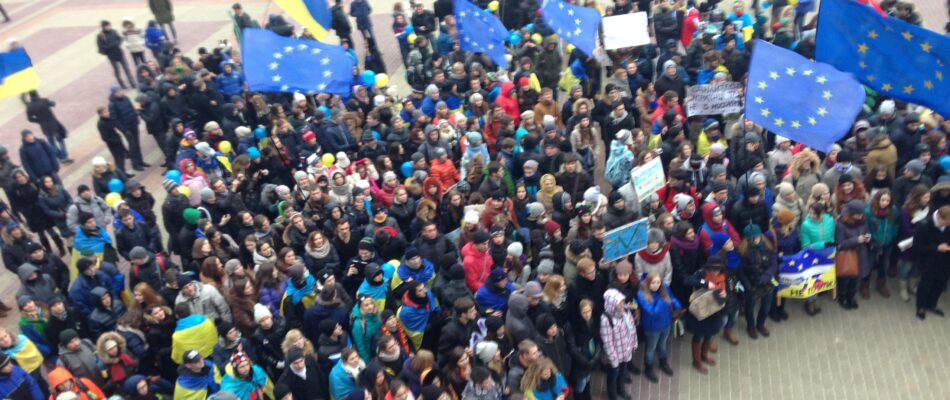
Repression and violence in Ukraine must be prevented
KIEV – The European Students’ Union (ESU) shows continuous support to Ukrainian students and citizens as it is increasingly concerned by the government’s intentions to pursue closer ties with Russia and the repression of citizens who voice the opposite opinion.
For the past two weeks, Ukrainian citizens, including thousands of students, have been protesting a decision made by the Ukrainian government to cease negotiations with the European Union on an Association Agreement. ESU has expressed its support to Ukrainian students because the Association Agreement contains important points for educational reforms through the application of the Bologna guidelines, the establishment of a quality assurance system, increased mobility and access to higher education. ESU has before demanded that the government listens to the demands of its citizens. However, the Ukrainian government has not responded to the wishes of its citizens but instead made a U-turn away from European integration by refusing to sign the agreement.
As a result, the protests grew to be the biggest civil mobilisation since the Orange revolution in 2004. More than 100.000 protesters went out to the streets of Kiev and blocked government buildings. The government and police forces responded by attacking and harming protesters during the nights of 29 November to 1 December. The 47 member unions of ESU adopted a resolution at its Board Meeting in Zagreb where they condemn the violent acts and call for human rights to be respected.
No trigger for a dialogue
There has been no progress in the dialogue between the Ukrainian citizens and the government to find a solution to this crisis and many students are under threat. Governmental representatives and the prosecutor’s office have demanded that higher education institutions provide information on students who have been absent during classes due to participation in the protests. Students have been discouraged to protest as they would face unfair academic treatments and be expelled from their higher education institutions for doing so. Moreover, students, constituting a large part of citizens protesting, have been targeted by the violent repression of police forces. Hundreds have been injured, many of them are students.
“Students have played a major role historically in fostering change and pushing for democracy and dialogues. Ukrainian students are put in a situation where their historical role is impeded and they have to fear for their academic future and life by choosing to play that role by protesting,” says Rok Primozic, Chairperson of ESU.
Students as agents for a change
“We condemn the violent attacks of police authorities against the civil population, the systemic targeting of students in repressive acts and the attitude of the government issuing new threats to its citizens. The violent behaviour of police forces against the Ukrainian population constitutes a severe breach of the most fundamental human rights to the freedom of expression and the right to assembly,” continues Primozic.
ESU calls once again on the President of Ukraine, Viktor Yanukovich, and its government to listen to the demands of its citizens and open a space for a dialogue. The Ukrainian government must act in accordance to the European Convention on Human rights, to ensure that human rights are respected and that citizens are allowed to express themselves. Students are a driving force for change and any form of violence or repression against them must be prevented.
— END —
For more information, please contact:
Rok Primozic, ESU’s Chairperson: +32/479.126.390 // rok@esu-online.org or Robert Hlynur Baldursson, ESU
Communications Manager: +32/473.669.894 // robert@esu-online.org

The European Students’ Union, headquartered in Brussels, is the umbrella organisation of 47 national unions of students from 39 European countries. ESU represents and promotes the educational, social, economical and cultural interests of students at the European level. Through its member unions, ESU represents over 11 million students in Europe. To find out more about ESU, follow us on Twitter @ESUtwt, check out or Facebook page or visit www.esu-online.org. ESU celebrates its 30th anniversary in 2012.
